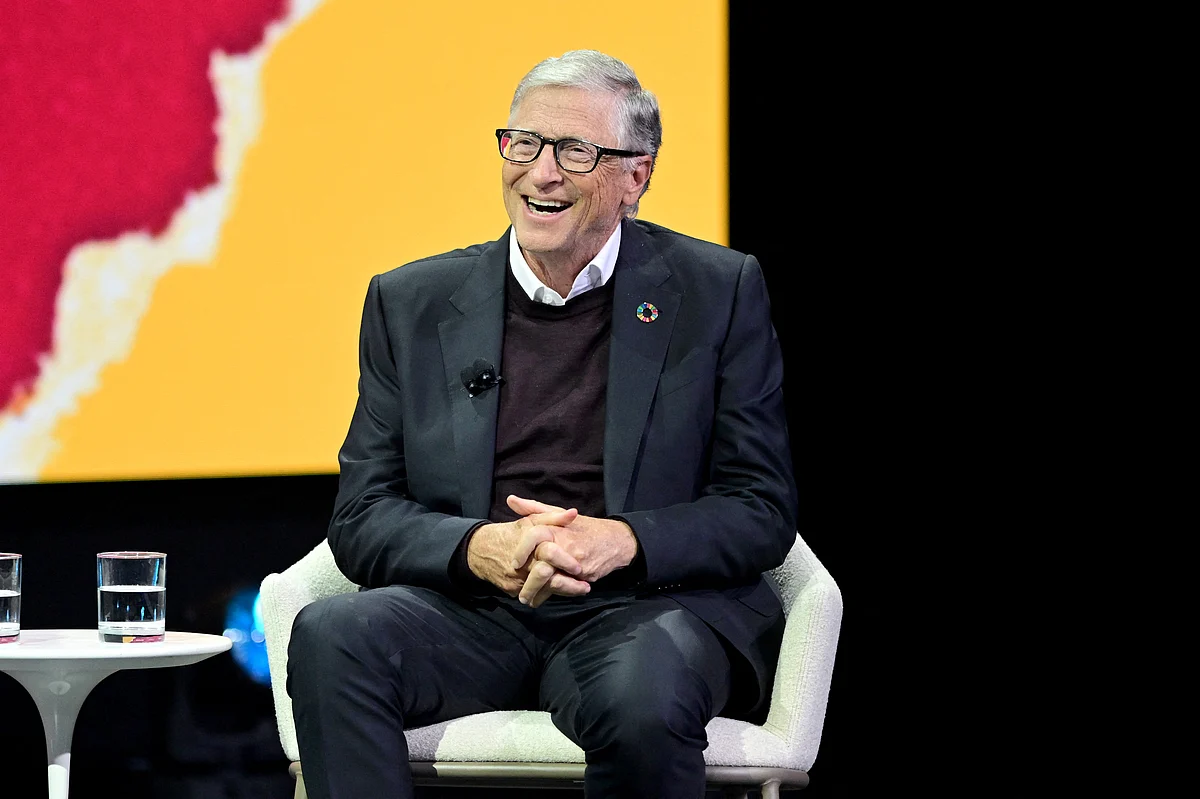
Climate Change 'Will Not End Civilisation': Bill Gate Points Out 3 Tough Truths
Billionaire philanthropist Bill Gates is calling for a fresh perspective on the climate crisis, one that puts people at the centre of solutions rather than focusing solely on global temperature targets.
In his latest memo, A New Way to Look at the Problem, Gates emphasises that tackling climate change should not come at the expense of health, development, and poverty reduction - especially in the world's poorest nations.
Recommended For YouHe also called for a "strategic pivot" in the global approach - from focusing solely on limiting rising temperatures to fighting poverty and preventing diseases.
Stay up to date with the latest news. Follow KT on WhatsApp Channels.
1. Global Warming won't end civilisationIn his memo, Gates calmed extreme fears, noting that while climate change is serious, it“will not be the end of civilisation.” He believes innovation and science will be central to managing climate change.
Even with moderate efforts to tackle climate change, experts project that by 2100, the world could see average temperatures rise by 2°C to 3°C compared with pre-industrial levels. That's well above the 1.5°C limit set under the 2015 Paris Agreement, and current trends suggest the globe will fall far short of this target by 2040.
Over the next decade, he argues, new zero-carbon technologies will become widely available, enabling countries to meet rising energy demands without worsening climate change.
2. People at the centre of innovationThe Microsoft co-founder argued that success in fighting climate change shouldn't be measured only by lowering emissions or global temperature - but by improving people's lives, especially in low-income countries.
"The global temperature doesn't tell us anything about the quality of people's lives," he said. "The biggest problems are poverty and disease, just as they always have been. Understanding this will let us focus our limited resources on interventions that will have the greatest impact for the most vulnerable people."
Through Breakthrough Energy, Gates has backed more than 150 companies working on solutions ranging from low-carbon cement and steel to advanced geothermal energy and AI-driven agriculture.
3. 'The best defence against climate change'But technology alone, he cautioned, isn't enough. Gates warned that climate policies must not deepen inequality, citing examples of well-meaning policies that left poor communities worse off - like fertiliser bans that caused food shortages.
According to him, focusing on energy, agriculture, and health will have the greatest impact on people's ability to withstand climate challenges, particularly in developing nations. Gates said that health and economic growth can cut climate-related deaths far more effectively than any single environmental measure.
"Prosperity are the best defence against climate change," he emphasised. Citing research from the University of Chicago's Climate Impact Lab, Gates noted that if low-income countries continue to grow economically, climate-related deaths could fall by more than 50 per cent by the end of the century. As people become healthier and wealthier, they are better equipped to survive floods, droughts, and heat waves.
Priorities for global climate communityGates outlined two key priorities for the international climate agenda. First, to drive the Green Premium - the extra cost of choosing clean technologies over fossil fuels - down to zero, making sustainable options as cheap and practical as existing ones.
Second, he urged world leaders to measure impact rigorously, ensuring limited resources go toward initiatives that deliver the greatest benefits for human welfare - from vaccines and malaria prevention to agricultural innovation that saves or improves the most lives per dollar spent.

Legal Disclaimer:
MENAFN provides the
information “as is” without warranty of any kind. We do not accept
any responsibility or liability for the accuracy, content, images,
videos, licenses, completeness, legality, or reliability of the information
contained in this article. If you have any complaints or copyright
issues related to this article, kindly contact the provider above.

















Comments
No comment